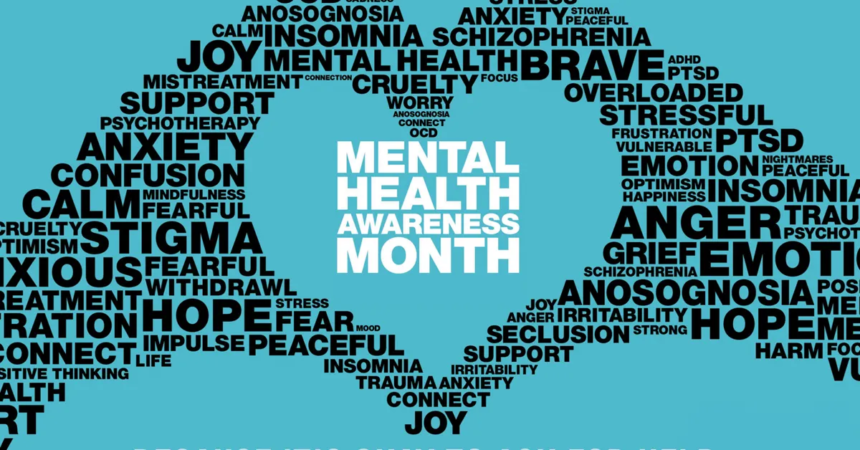In the intricate tapestry of India’s diverse society, the silent struggle for mental health often goes unnoticed. Against this backdrop, Non-Governmental Organizations (NGOs) are emerging as unsung heroes. And actively contributing to the well-being of countless individuals grappling with mental health challenges.
Among these organizations, our foundation stands out for its dedication and commitment to the cause. Through a myriad of events and initiatives, Sankesh Global Foundation tirelessly works to raise awareness, provide support, and promote mental health education across communities. In this exploration, we delve into the profound impact of NGO in India. With a particular focus on the transformative efforts of Sankesh Global Foundation, unraveling their pivotal role in supporting mental health.
Breaking the Chains of Stigma

At the forefront of mental health advocacy, NGO in India are dismantling the chains of stigma surrounding mental health issues. Through innovative awareness campaigns, these organizations challenge societal perceptions, encouraging open conversations and promoting a more inclusive understanding of mental health.
NGOs leverage various mediums, including social media, community events, and collaborations with influencers, to create a platform where individuals feel empowered to share their experiences without fear of judgment. By fostering empathy and understanding, these initiatives work towards normalizing mental health discussions and dismantling the pervasive stigma that often hinders individuals from seeking help.
Community-Centric Mental Health Initiatives
NGOs play a crucial role in implementing community-centric mental health initiatives, particularly in rural and underserved areas where access to mental health services is limited. Organizations are actively involved in developing culturally sensitive interventions that focus on building awareness, providing education, and training community members to identify.
By engaging with local leaders and leveraging existing community structures, NGOs aim to create an environment where seeking help for mental health issues is not only normalized but also supported by the community. These initiatives go beyond traditional healthcare settings, reaching individuals where they live and fostering a sense of community resilience.
Helplines as Lifelines
NGOs operate helplines and crisis intervention services, providing a lifeline for individuals in distress. These helplines offer a confidential space for individuals to express their concerns, seek guidance, and access emotional support. Different organizations have established dedicated helplines focused on mental health, demonstrating a commitment to immediate crisis intervention and suicide prevention.
The anonymity provided by these helplines is crucial in encouraging individuals to reach out for help without the fear of judgment. By offering a listening ear and timely assistance, NGOs contribute significantly to preventing and alleviating mental health crises.
Capacity Building for Sustainable Change

NGOs in India actively engage in capacity building, providing training programs for healthcare professionals, educators, and community leaders. Organizations equip individuals with the skills and knowledge needed to identify early signs of mental health conditions, offer support, and facilitate appropriate referrals.
These capacity-building initiatives contribute to creating a network of informed and compassionate individuals who can act as catalysts for sustainable change within their communities. By empowering various stakeholders with mental health literacy, NGOs are laying the foundation for a more supportive societal ecosystem.
Advocacy for Policy Reforms
Beyond direct intervention, NGOs advocate for policy changes related to mental health, working towards ensuring that mental health is prioritized in national health policies.
NGOs serve as the voice of those affected by mental health issues, advocating for their rights and striving to create an environment where mental health is given the attention it deserves in the policy realm. By influencing policy changes, these organizations contribute to a more comprehensive and accessible mental health support system.
Addressing Cultural Nuances and Regional Variations
The cultural diversity of India poses unique challenges in addressing mental health issues. NGO in India recognize the importance of tailoring their approaches to suit regional variations and cultural nuances. By understanding the specific needs of different communities, these organizations ensure that their interventions are not only effective but also respectful of diverse cultural contexts.
NGOs actively collaborate with local communities, respecting their traditions and beliefs while promoting mental health awareness. This cultural sensitivity is vital in fostering acceptance and encouraging individuals to seek help without feeling a sense of alienation.
Conclusion
In the dynamic landscape of India’s mental health challenges, NGOs are beacons of hope, navigating uncharted territories and unlocking the door to a brighter, more resilient future. From challenging stigma to providing immediate support, these organizations are indispensable partners in the collective journey towards mental well-being.
As we look ahead, the collaborative efforts of NGOs, government agencies, and the private sector are essential for creating a comprehensive mental health support system. Increased funding, targeted awareness campaigns, and the integration of mental health education into academic curricula are vital components of a multi-faceted strategy to promote mental well-being in India.
Acknowledging cultural nuances, these NGOs promote acceptance and collaboration with local communities. Sankesh Global Foundation an NGO in India, an integral player, contributes significantly to this transformative landscape. Together, these NGOs forge a future where mental well-being is a societal cornerstone, accessible to all.

